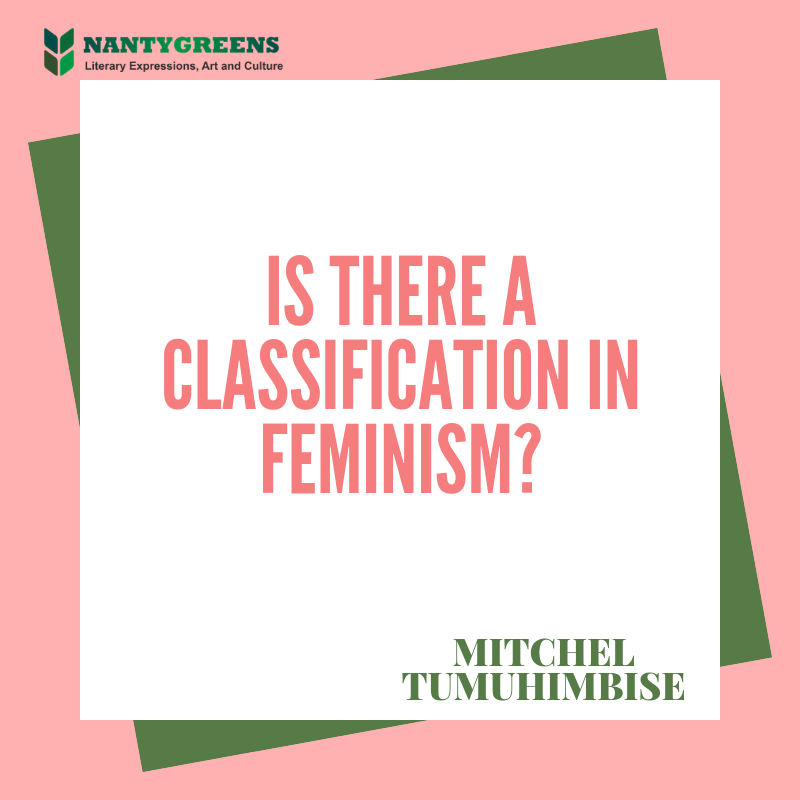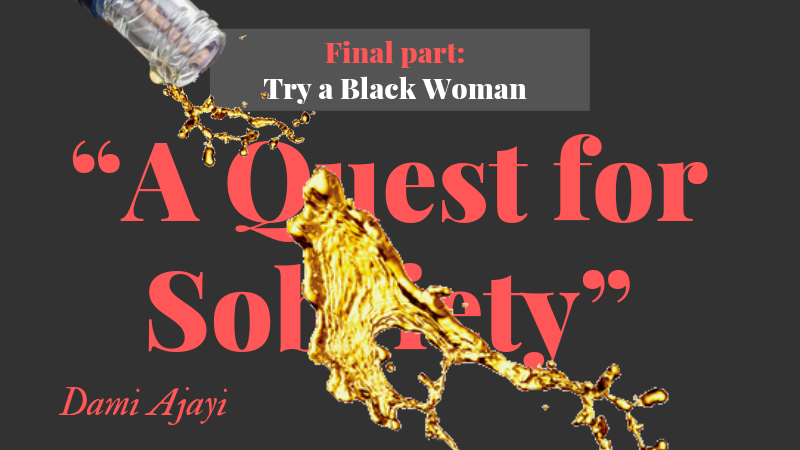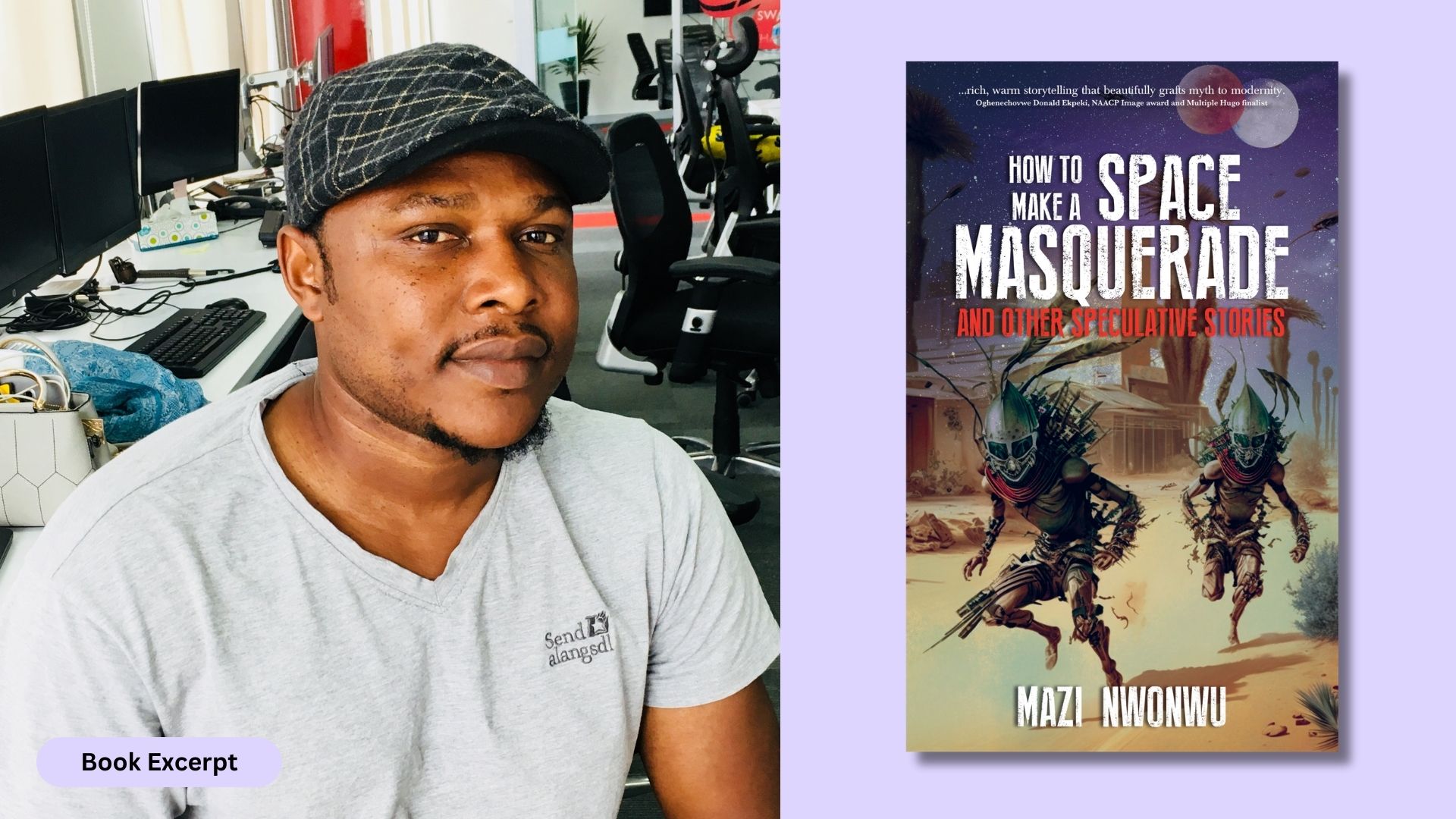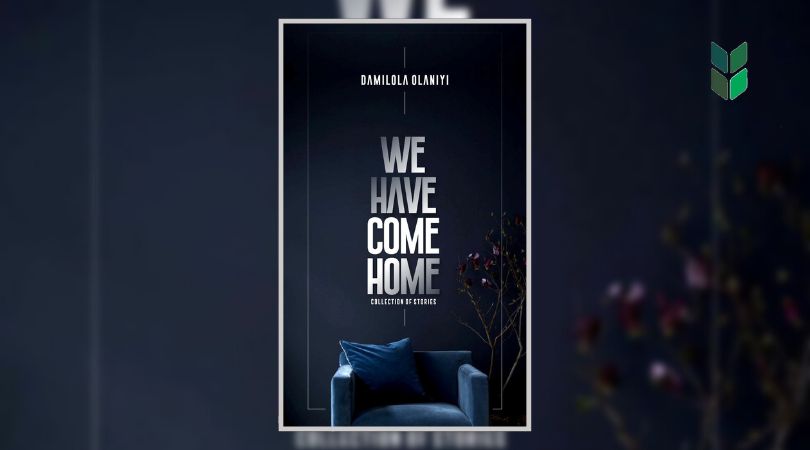
2004 is the year I had the ‘opportunity’ to misconceive International Women’s Day. It was the day, at least in my primary school, on which the teachers ensured that we, the boys, went to class and they, the girls, went on camaraderie.
Well, the school administration was not brutally unfair. Luckily, when it came to meals, “we” and “they” ate of the same beef and matooke (steamed plantain) for lunch—a break from the many beans-and-cornmeal infested days of boarding school. But, unless my head has chosen to hallucinate, it was also the day that “we” were charged with peeling matooke, another exemption from “their” servile work.
Away from school, we (me and my male cousins) often had to avoid betraying our dissent against “the special favors” our female contemporaries enjoyed. “They” had to use the bathrooms first and, as if to further our disgruntling, they slept in the bigger bedrooms with better mattresses.
It is true “the special favors” conferred on us some feeling of reverence for “them”, only that it was out of an equal feeling of apathy and contempt. The singular point of fairness was that we (still) ate the same food they prepared. We weren’t to do the mopping and cooking, their servile chores. The laborious and proper duties were left to ‘us’.
“They” are weak, was our unspoken consensus. It fairly made sense. But what about the special favors?
2005 is the year that marked the thorough public lashing of hoards of illicit boys in senior classes. The ones who were extra-judicially charged with the felony of “bad touches”. Every teacher said “they” had to quickly speak up whenever a boy touched “them”. I had to avoid “bad touches”. Everyone had to avoid “bad touches”. And, to avoid “bad touches”, you had to be hypercautious not to nudge a girl anywhere close to her knockers and bottom. That was fair as well.
The unfair part was that you had to pray to the good lord to save you from the devil’s temptation of fighting with a girl at school lest you made a “bad touch.” The creed was that girls never told lies on how or when “the bad touches” occurred. It was every boy’s nightmare to be charged with “bad touching”. If any girl in her puberty happened to annoy you, it was better to nurse your anger than settle matters with fists. It was better to avenge by beating up his weakest brother or throwing stones at her father’s house by night. To be precise, the rule was that a boy had to never imagine a fight with a girl. Girls were weak.
2008 was the year I began asking questions. “Is the female gender weaker?” Society apparently, perceives gender differently. It was the year I learnt of people who objectively were trying to turn the tables of gender inequality.
Feminism. The noun sounded feminine but they all weren’t women.
I must be feminist too, I thought to myself. I wanted my sisters, my friends to have equal opportunities, to be free from any form of abuse or discrimination.
2014 is the year I was admitted to college. And, as per the Public Universities’ admission process, “they” had to be awarded “free points” if they were to compete favorably with “us”. Why were “they” awarded free points? Were they less intelligent? I wasn’t sure I could figure it out. I did anyway. It was called affirmative action. My prior understanding of affirmative action was that it was for people with “special needs”, like giving a note to a beggar on the street, or helping a blind man cross the road.
I noticed the question was now public: Is the female gender less gifted, less intelligent that it needed affirmative action?
No, was the answer. It was to afford more ladies college education. It was to have many women in “the powerful positions” stuffed with testosterone. It was to inspire gender equality in all professions. It is true many of my ancestors sent the boys to school and left the girls to be married. It was just a tip of the mountain of society’s mishandling of male and female differences. Having a woman in a powerful position inspires one unmotivated girl in a rural settlement to dream bigger and have self-esteem.
Is the female gender less gifted, less intelligent that it needed affirmative action?
I didn’t need all those answers. If someone had answered “yes”, I would have shut up their mouth by just the experience of my own mother and my (now) deceased grandmother. The women that have supported my siblings and I through school with an unfathomable emotional and existential intelligence. How could I ever consider such women less intelligent, weak?
***
Until a few years ago, I would have told everyone I was feminist. The whole idea, and ideal, of feminism as the advocacy of women’s rights on the ground of the equality of the sexes was not only appealing to me but is also still the right thing in a society still laden with disparity in perceptions of gender. But if today, I was asked whether I am feminist, I don’t really think I would say, “Yes I am” or “No, I am not”. Is it that I no longer subscribe to the idea of gender equality? No. I am probably trying to redefine what really feminism is, what type of feminist I am, or whether by the current standard I DON’T QUALIFY.
I
The BBC has archived a page on whether or not induced abortion is a feminist and a women’s rights ideal. It is thus a major controversy in women’ rights and feminism. The consideration of legalized induced-abortion being a fundamental women’s rights has been a core aspect, supported by many a feminist movement, the UN Human Rights Committee notwithstanding. Although, for many prolife women and men, the question yet to be answered is if the “acceptable” scope of women’s rights transcends their conviction of fundamental right to life for unborn children (both female and male), with or without special needs. If one believes in equal opportunity for both male and female, should it infer their advocacy for legal abortion as a women’s right and fundamental right? If yes, isn’t it a contradiction?
…for many prolife women and men, the question yet to be answered is if the “acceptable” scope of Women’s Rights transcends their conviction of fundamental right to life for unborn children (both female and male), with special needs or without special needs.
It is indubitable that many women and men are torn apart on whether, or not, to be called feminist; troubled by being catcalled as misogynist because they have a prolife standing? They are conscious on not being apathetic in regards to the dignity of human life and perceive all human life to be precious. They believe all individuals regardless of age and sex are equal and have equal rights. But more importantly, they have been pushed off the bus for looking for a more honest description of a human’s rights.
II
As much as answers promise to satisfy our curiosity, questions tend to make us uncomfortable. Probably the most uncomfortable questions are on who sets the moral standards? When it comes to the dignity of human life and gender, who determines who should be called what? Is it an individual’s conscience or the laws of the state or God or the consensus of the people?
If we concede that it is the latter, we will concede that it is the same society that still fears to be singled out as having a specific stand. It appears that the spectrum of what society expects from the individual by virtue of being a woman is still uncertain, and if it dares to be certain would remain to be considered partial.
It is not uncommon for some women’s rights movements to consider large monogamous families and the state of the housewife as “discriminatory” or “demeaning” for the modern woman. The fact that many underage girls are still given away in forced and polygamous marriages is undeniable. However, it does not nullify the fact that modern women, by exercising their rights, still make the conscious decision to have many children. Some events dedicate their whole time to raising their families.
If a man’s choice to leave formal employment so as to dedicate more time to looking after his children is embraced with great admiration and praise, why is the state of housewife still treated with contempt from not only some in patriarchy but also feminist movements?
As much as society wants to address the history and current existence of gender inequality, it is more reasonable to check some of the surging fundamentalist and assumptive notions of women’s rights. It would be discriminatory for radical women’s rights movements to overlook the beliefs, nature and preferences of women by considering only their own ideals and beliefs.
It appears that the spectrum of what society expects from the individual by virtue of being a woman is still uncertain, and if it dares to be certain would remain to be considered partial.
Perhaps we concur that every individual has rights. And if we do, the uncomfortable questions for the current women’s rights trend still come in.
Who determines which career women should pursue or how much a woman should earn? What makes men and women equal? Does equal, financial and professional status infer equal opportunities? Are poor men equal to the rich women? (Not per monetary standards.)
If society avails equal opportunity to everyone no matter their gender, should it demand an identical hierarchical state despite a person’s effort? Shall it assume an identical moral stand from all women? Shall it expect the same career choices from men and women? And if that is to be the authenticity measure of gender equality, wouldn’t it undermine the innate behavior, abilities and personal choices of femininity?
If one believes in equal opportunity for both male and female, should it infer their advocacy for legal abortion as a women’s right and fundamental right? If yes, isn’t it a contradiction?
Perhaps it is time to notice that personal achievements despite one’s sexuality is not only determined by opportunity (support) and effort but also the innate differences between men and women. We could ask why for instance, in countries where women’s rights movements sprang, there are more women than men in healthcare professions than there are in the engineering professions.
If the girls that “we” considered favored in my childhood were better supported materially, did it mean they were immunized against bias? On many occasions, what we set as the expectations and ideal solutions are not necessarily the pragmatic thing to do. Despite many similar controlled feminist expectations, some of these girls may decline their preference to have big families or to be house wives so as to fit the misconception of women empowerment as more women pursuing careers that were once “preserved” for men.
If any rights’ advocacy or culture should limit or undermine the noble personal-choices a man or woman makes so as to achieve his or her expectations, it would be against the individual’s nature and fundamental rights.
Mitchel Tumuhimbise is from Kampala, possibly “cursed with imagination” that makes him create surreal-worlds in speculative short fiction–part of which was shortlisted for Black Letter Media’s The Short Story is Dead, Long Live The Short Story 2017 competition. His other written work can be found on Kalahari Review and several other online spaces.








